Author Archive
Wednesday, August 31st, 2011
Tune in every Monday at 9:40 p.m. for Jazz Stories.
Jazz musicians refer to what they do as telling stories. We bring you backstage stories from jazz legends and those in the making. Hear what jazz sounds like when musicians put down their instruments. Each piece is approximately 10 minutes in length.
Posted in Music News | Comments Off on New Series on WNCU
Monday, August 29th, 2011
 The Harlem Quartet, a world-class ensemble of string musicians from diverse ethnic backgrounds, is coming to North Carolina Central University on Sept. 8 for a special 7 p.m. performance at B.N. Duke Auditorium that is free and open to the public. The Harlem Quartet, a world-class ensemble of string musicians from diverse ethnic backgrounds, is coming to North Carolina Central University on Sept. 8 for a special 7 p.m. performance at B.N. Duke Auditorium that is free and open to the public.
Praised for its “panache” by The New York Times, the Harlem Quartet is currently the resident
ensemble in the New England Conservatory of Music’s Professional String Quartet Program. Its mission is to advance diversity in classical music while engaging young and new audiences through a varied repertoire that highlights works by minority composers.
The Harlem Quartet has gained a wide audience since its acclaimed Carnegie Hall debut in 2006. That same year, the ensemble also appeared at Harlem’s legendary Apollo Theatre with a well-received performance of Wynton Marsalis’s At the Octoroon Balls. In collaboration with New York Philharmonic Principal Cellist Carter Brey, the group performed at the Library of Congress in a concert employing the Library’s matched collection of Stradivari instruments.
Each member of the Harlem Quartet is a seasoned solo artist, having appeared with the New York Philharmonic, the Boston Pops, and the Atlanta, Baltimore, Cleveland, Detroit, National, New World and Pittsburgh symphony orchestras, among others. As a quartet, they have performed in many communities across the country including Detroit, New York, Los Angeles, Atlanta, and Boston.
Dr. Timothy Holley, associate professor of music at NCCU, said the quartet’s program strikes a fine balance between the standard chamber music repertoire and that of African-American composers.
“Among the genres of operatic and orchestral music, chamber music—which includes the string quartet in particular–is still recognized as the backbone of classical music,” he said. “It is an interesting and challenging notion to have such an ensemble performing in concert, not just at NCCU but any performance space in the African-American community.”
Holley also noted the unique blend of culture created by the quartet’s lineup. Violinist Ilmar Gavilán is Cuban; violinist Melissa White is African-American; violist Juan-Miguel Hernandez was born in Canada but his family is from the Dominican Republic; and cellist Paul Wiancko is of Polish and Japanese descent.
The quartet opened its 2009-10 season as featured soloists on the national Sphinx Chamber
Orchestra Tour, including performances at New York’s Carnegie Hall, the Eastman School of Music, Oberlin College, and the Cerritos Center for the Performing Arts. In December, it gave two performances at the White House for guests of President and First Lady Michelle Obama, and made a Christmas morning appearance on NBC’s “Today Show.” The Quartet has also performed with the legendary violinist Itzhak Perlman at the Metropolitan Museum of Art, and made its London debut performance at the residence of the U.S. ambassador to the U.K.
The Harlem Quartet performed during the Raleigh Chamber Music Guild 2010-2011 Masters Series. This year, the guild has partnered with NCCU’s Department of Music and University College to bring the ensemble to NCCU as part of a return performance in the Triangle Area. The Sept. 8 concert is funded through the Lyceum Series. The Raleigh Chamber Music Guild will host a ticketed show 3 p.m. Sunday, Sept. 11, in the Fletcher Opera House in Raleigh. Tickets are available at the guild’s office, 919-821-2030 or www.rcmg.org.
“The Raleigh Chamber Music Guild has done an amazing job in identifying and engaging young chamber music ensembles of diverse ethnic and cultural backgrounds in their annual chamber music series,” Holley said. “They have wanted for several years to partner with NCCU in hosting a concert beyond the city limits of Raleigh. It is also a very important charge of the RCMG that its guest performers have a close and direct connection to the community of their audience.”
He described the partnership as “a visionary undertaking” that helps challenge perceptions that only certain styles and traditions of music are presented at institutions such as NCCU.
Learn more about The Harlem Quartet on their website, www.harlemquartet.com.
WHAT: The Harlem Quartet performs at NCCU
WHEN: 7 p.m., Sept. 8
WHERE: B.N. Duke Auditorium, 1801 Fayetteville St., Durham
COST: Free, open to the public.
INFO: Call University College at 530-6932
Posted in Music News | 6 Comments »
Thursday, August 18th, 2011
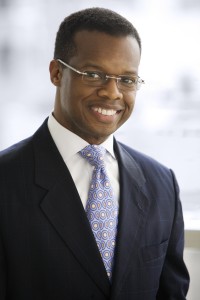 D. Keith Pigues, a business executive, author and teacher, has been named dean of the School of Business at North Carolina Central University. D. Keith Pigues, a business executive, author and teacher, has been named dean of the School of Business at North Carolina Central University.
Pigues comes to NCCU from PlyGem Industries, a privately held building products company based in Cary, N.C., where he was senior vice president and chief marketing officer and member of the company’s executive committee. He previously held executive positions at CEMEX, RR Donnelley, ADP and Honeywell International. He also has been an adjunct professor at Kenan-Flagler Business School at UNC–Chapel Hill, where he taught courses in leadership and served as an executive coach for the Leadership Immersion, a course on corporate leadership development.
“Our long-term goal is for the business school at NCCU is to be one of the best in the country,” Chancellor Charlie Nelms said. “Achieving that goal requires the expertise of a visionary leader who can establish strategic partnerships with the business community. I am confident that Keith Pigues has the passion and expertise needed to do just that.”
The author of Winning with Customers: A Playbook for B2B (Wiley & Sons, 2010), Pigues is past chairman of the Business Marketing Association’s board of directors and a member of the Executive Leadership Council. He began his career in sales and marketing with IBM and Hewlett–Packard, and has more than 25 years of experience in marketing, strategic planning and sales leadership.
“We’re poised for transformative change and innovation,” NCCU Provost Debbie Thomas said. “With Pigues’ appointment, we’re shifting away from traditional leadership to one characterized by strong ties to both the corporate and educational sectors.”
Black Enterprise Magazine named Pigues one of its top executives in marketing and advertising for 2011. B2B Magazine recognized him as a leading senior marketing practitioner and a member of “Who’s Who in B-to-B” in 2007 and 2010. He received the Frost & Sullivan Marketing Lifetime Achievement Award in 2007.
“I look forward to partnering with the business community to increase awareness of the NCCU School of Business and position it as a leading global business school,” Pigues said. “This will be exciting.”
Pigues received a Bachelor of Science degree in electrical engineering in 1984 from Christian Brothers University in Memphis, Tenn., and an MBA from UNC’s Kenan–Flagler in 1993.
Posted in Public Affairs | 5 Comments »
Thursday, August 18th, 2011
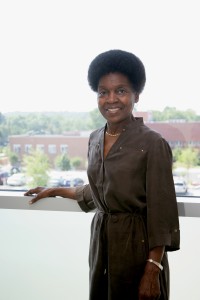 Dr. Betty Pierce Dennis, who chaired the Nursing Department at North Carolina Central University from 1999 to 2004, has returned to chair the department once again as it heads into a period of significant expansion in its new, state-of-the-art teaching facility. Dr. Betty Pierce Dennis, who chaired the Nursing Department at North Carolina Central University from 1999 to 2004, has returned to chair the department once again as it heads into a period of significant expansion in its new, state-of-the-art teaching facility.
Before her return to NCCU, Dennis was a professor of nursing and dean of the Division of Nursing at Dillard University in New Orleans. She was also the director and a professor at the Minority Health and Health Disparities Center, a collaboration between Dillard and Louisiana State University funded by the National Institutes of Health.
Dennis assumed leadership of the department at NCCU as it has moved this month into its new building. The $25 million, 69,000-square-foot facility includes classrooms, a 200-seat auditorium, skill labs with advanced simulation technology and facilities for expanded student services.
Although the new building is welcome, Dennis said, she plans to focus on motivating faculty and students. “Good facilities are great — they make your life easier,” she said, “but the real challenge is working with people.” The new building will pave the way for enrollment growth in the nursing program, she said, with a goal of elevating the status of the department to a School of Nursing. Such a step requires the approval of the UNC Board of Governors, and the pace of growth will depend on faculty and clinical resources and budgetary considerations, she said.
Dennis earned a Bachelor of Science in Nursing degree from N.C. A&T State University, a Master of Science in medical–surgical administration from Emory University and a Doctor of Public Health from UNC–Chapel Hill. Before she led the NCCU nursing program from 1999 to 2004, she held associate professorships at both NCCU and UNC – Charlotte. She is an Army veteran, having served in the U.S. Army Nurse Corps, where she attained the rank of captain. She also has extensive international experience, as a teacher in Moshi, Tanzania, at Kilimanjaro Christian Medical Centre School of Nursing, and as a consultant and staff member at the Ithusheng Community Health Centre in Tzaneen, South Africa. Working with the International Council of Nurses, she contributed to the development of a nursing documentation tool for international use.
She has written extensively for academic publications. Her research interests are primarily in community-based interventions supported by participatory models, global health issues affected by nursing education and nursing care, and the ethics of health care and health care delivery.
Posted in Public Affairs | 7 Comments »
Thursday, August 18th, 2011
 Making Contact is committed to in-depth critical analysis that goes beyond the breaking news. Showcasing voices and perspectives rarely heard in mainstream media, Making Contact focuses on the human realities of politics and the connections between local and global events, emphasizing positive and creative ways to solve problems. Making Contact is committed to in-depth critical analysis that goes beyond the breaking news. Showcasing voices and perspectives rarely heard in mainstream media, Making Contact focuses on the human realities of politics and the connections between local and global events, emphasizing positive and creative ways to solve problems.
Making Contact will air every Thursday, beginning August 25, following Inside NCCU, at 8:30pm.
Click here to view website.
Posted in Music News | 7 Comments »
Monday, August 15th, 2011
On Labor Day, Sept. 5, tune into WNCU to hear the best of the Newport Jazz Festival that took place on Aug. 6. The Labor Day special will air from 7 a.m. – 5 p.m. and 7 p.m. – 10 p.m. EDT. Tell Me More and Democracy Now will air at its regular times.
The Labor Day special lineup includes the following:
- 7 a.m., Regina Carter’s Reverse Thread in Concert
- 8 a.m., John Hollenbeck Large Ensemble in Concert
- 9 a.m., Joey DeFrancesco Trio in Concert
- 10 a.m., Ambrose Akinmusire Quintet in Concert
- 11 a.m., Ravi Coltrane Quartet in Concert
- 12 p.m., Randy Weston’s African Rhythms Trio
- 1 p.m., New Black Eagle Jazz Band in Concert
- 2 p.m., Mario Castro Quintet in Concert
- 3 p.m., Avishai Cohen’s Triveni in Concert
- 4 p.m., Mingus Big Band in Concert
- 7 p.m., Trombone Shorty and Orleans Avenue in Concert
- 8 p.m., Miguel Zenon in Concert
- 9 p.m., Mostly Other People Do The Killing in Concert
Posted in Music News | 2 Comments »
Tuesday, August 2nd, 2011
On Thursday, August 4, at 7pm, WNCU will air a new jazz show, The Loft.
Get ready to discover the universe of hard bop, free bop, and the avant garde.
The playlist will include the Art Ensemble of Chicago, Kahil El Zabar, Henry Threadgill, Cecil Taylor, Billy Bang, Don Cherry and many more artists who explore free expression through their music.
Modern artists like Ken VanDermark, John Zorn and Brian Blade will be featured alongside the legends.
Tune in every Thursday at 7pm!
Thanks for listening to the home of jazz.
Posted in Music News | 9 Comments »
Monday, August 1st, 2011
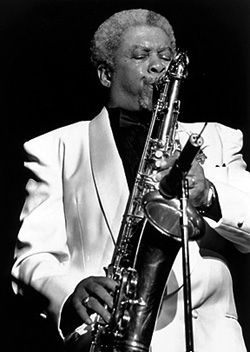 Frank Foster, a saxophonist, composer and arranger who helped shape the sound of the Count Basie Orchestra during its popular heyday in the 1950s and ’60s and later led expressive large and small groups of his own, died on Tuesday at his home in Chesapeake, Va. He was 82. Frank Foster, a saxophonist, composer and arranger who helped shape the sound of the Count Basie Orchestra during its popular heyday in the 1950s and ’60s and later led expressive large and small groups of his own, died on Tuesday at his home in Chesapeake, Va. He was 82.
The cause was complications of kidney failure, said his wife of 45 years, Cecilia. Mr. Foster had a varied and highly regarded career as a bandleader, notably with his Loud Minority Big Band, and he was sought after as an arranger for large ensembles. But it was the strength of his contribution to the so-called New Testament edition of the Basie band, from 1953 to 1964, that anchors his place in jazz history.
Mr. Foster wrote and arranged a number of songs for the band, none more celebrated than “Shiny Stockings,” a puckishly genteel theme set at a cruising medium tempo with a slow but powerful crescendo. Recorded by Basie on his classic 1955 album “April in Paris,” it subsequently became both a band signature and a jazz standard, often performed with lyrics (there were two sets, one by Ella Fitzgerald and one by Jon Hendricks).
Among Mr. Foster’s less famous entries in the Basie canon, some, like “Blues in Hoss’ Flat,” have enjoyed steady circulation in the repertories of high school and college jazz bands.
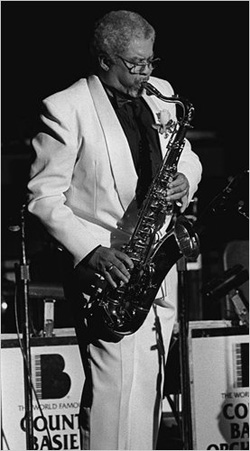 He was one of two musicians named Frank in the band’s saxophone section, the other being the tenor saxophonist and flutist Frank Wess. Their contrasting styles as soloists — Mr. Foster was the more robust, with a harder husk to his tone — became the basis of a popular set piece called “Two Franks,” written for the band by Neal Hefti. He was one of two musicians named Frank in the band’s saxophone section, the other being the tenor saxophonist and flutist Frank Wess. Their contrasting styles as soloists — Mr. Foster was the more robust, with a harder husk to his tone — became the basis of a popular set piece called “Two Franks,” written for the band by Neal Hefti.
After leaving Basie, Mr. Foster worked for a while as a freelance arranger, supporting the likes of Frank Sinatra and Sarah Vaughan.
He returned to the Basie band in the mid-1980s, this time as its leader. (Count Basie died in 1984.) He held the post for nearly a decade and earned something like emeritus status: when the Count Basie Orchestra was enlisted for Tony Bennett’s 2008 album “A Swingin’ Christmas,” Mr. Foster was the arranger.
Frank Benjamin Foster III was born on Sept. 21, 1928, into Cincinnati’s African-American middle class — his father was a postal clerk, his mother a social worker — and began his musical studies first on piano, then clarinet. The alto saxophone came next, and within a year of picking it up he was playing in a neighborhood dance band.
Most of his early professional experience involved playing stock arrangements in big bands; during his senior year of high school he formed one himself, writing charts from scratch. He considered himself self-taught as an arranger, having studied only harmony in school.
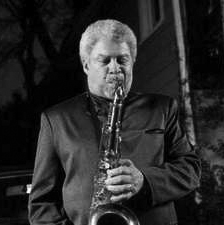 Mr. Foster attended the historically black Wilberforce University in Ohio, after being rejected by Oberlin College and the Cincinnati Conservatory. He played in and arranged for Wilberforce’s dance band, the Collegians. Mr. Foster attended the historically black Wilberforce University in Ohio, after being rejected by Oberlin College and the Cincinnati Conservatory. He played in and arranged for Wilberforce’s dance band, the Collegians.
As a budding tenor saxophonist he drew inspiration from Wardell Gray and Dexter Gordon, strong stylists who made the transition from swing to bebop. “I’m a hard bopper,” he told an interviewer with the Smithsonian Jazz Oral History Program in 1998. “Once a hard bopper, always a hard bopper.”
But Mr. Foster was hardly confined to bebop as a musical language. His tenure with the Count Basie Orchestra, which began after his tour of duty with the Army during the Korean War, proved as much.
So did his efforts after leaving Basie, when he played in smaller groups, including those led by his wife’s first cousin, the drummer Elvin Jones. At the time he was drawn to the adventurous music of John Coltrane, in whose quartet Mr. Jones had created an influential polyrhythmic pulse. An album called “Well Water,” recently released on the Piadrum label, captures Mr. Foster and Mr. Jones jointly leading the Loud Minority Big Band in 1977, with a determinedly modern mind-set. The album includes their take on “Simone,” Mr. Foster’s best-known post-Basie composition.
Even as he spent a good portion of the late 1960s and ’70s exploring harmonic and rhythmic abstraction, Mr. Foster never quite surrendered to it. And he was no purist about jazz-funk — “Manhattan Fever,” one of his best albums, released in 1968 on Blue Note, has several effervescent backbeat-driven tunes.
In 2001 Mr. Foster had a stroke that hindered his ability to play the saxophone. He was named a National Endowment for the Arts Jazz Master the following year, and continued to write and arrange music, often as a commission for organizations like the Jazz at Lincoln Center Orchestra. He also became active in the Jazz Foundation of America, a nonprofit organization that delivers aid to musicians in need.
In addition to his wife, Mr. Foster is survived by two children from their marriage, Frank Foster IV and Andrea Jardis Innis; two sons from his first marriage, Anthony and Donald; and six grandchildren.
Originally published in The New York Times
Posted in Artist of the Month | 6 Comments »
Thursday, July 28th, 2011
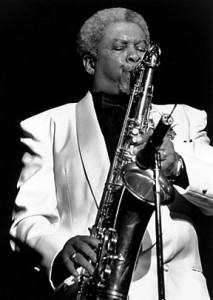 “Although jazz has been officially declared a national treasure in recent years, far too few of its representative artists ever receive sufficient acknowledgement in the mass media. In view of this unfortunate reality, it’s quite fitting and honorable that a prestigious entity such as the National Endowment for the Arts recognizes the artistic, aesthetic and spiritual value of this home-grown music through the American Jazz Masters Fellowship. Therefore, it is with extreme happiness and gratitude that I accept the fellowship award for the year 2002.” “Although jazz has been officially declared a national treasure in recent years, far too few of its representative artists ever receive sufficient acknowledgement in the mass media. In view of this unfortunate reality, it’s quite fitting and honorable that a prestigious entity such as the National Endowment for the Arts recognizes the artistic, aesthetic and spiritual value of this home-grown music through the American Jazz Masters Fellowship. Therefore, it is with extreme happiness and gratitude that I accept the fellowship award for the year 2002.”
Although best known for his work in the Count Basie Orchestra (and as the composer of the Count Basie hit, “Shiny Stockings”), Frank Foster’s saxophone playing owes more to the bebop of Charlie Parker and Sonny Stitt than the swing of Basie.
Foster began playing clarinet at 11 years old before taking up the alto saxophone and eventually the tenor. By the time he was a senior in high school, he was leading and writing the arrangements for a 12-piece band. Foster studied at Wilberforce University in Ohio before heading to Detroit in 1949 with trumpeter Snooky Young for six weeks, becoming captivated by its burgeoning music scene. Drafted into the Army, Foster left Detroit and headed off to basic training near San Francisco, where he would jam in the evenings at Jimbo’s Bop City.
After being discharged in 1953, two life-changing events happened to Foster: he sat in with Charlie Parker at Birdland and he was asked to join Count Basie’s band, where he stayed until 1964. Foster’s fiery solos contrasted nicely with Frank Wess’ ballad work, providing Basie with an interesting saxophone combination. Foster, already an accomplished composer by this time, learned from Basie how to simplify arrangements to make the music swing. He soon was providing compositions and arrangements for the band (“Blues Backstage,” “Down for the Count,” the entire Easin’ It album, just to name a few), with his most popular number being “Shiny Stockings.” He also was an extremely successful freelance writer, creating a large body of work for jazz, including works contributed to albums by singers Sarah Vaughan and Frank Sinatra, and a commissioned work for the 1980 Winter Olympics, Lake Placid Suite, written for jazz orchestra. In 1983, Dizzy Gillespie commissioned Foster to orchestrate Gillespie’s song “Con Alma” for a performance and recording by the London Philharmonic Orchestra.
In the 1970s, Foster played with contemporary musicians such as Elvin Jones, George Coleman, and Joe Farrell and began expanding his compositions. He led his own band, the Loud Minority, until 1986 when he assumed leadership of the Count Basie Orchestra from Thad Jones. While playing the favorites, Foster also began introducing original material into the playlist. Foster resigned as the musical director of the orchestra in 1995 and began recording albums again. In addition to performing, Foster has also served as a musical consultant in the New York City public schools and taught at Queens College and the State University of New York at Buffalo. To date, Foster has received two Grammy Awards.
Frank on tenor with the Count Basie Orchestra
http://www.youtube.com/watch?v=719bKVSwrT8&feature=related
JazzWax Blog:
http://www.jazzwax.com/2010/10/how-i-helped-frank-foster.html
Posted in Music News | 8 Comments »
Monday, July 25th, 2011
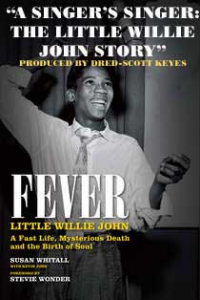 WNCU will broadcast a Beat the Heat Special on Saturday, August 13, at 3 p.m. WNCU will broadcast a Beat the Heat Special on Saturday, August 13, at 3 p.m.
Although his life was cut tragically short, Little Willie John had gained a reputation as being a singer’s singer. Born in Arkansas in 1937, William Edward John found his voice in the church halls, nightclubs and the blind pig after hour joints of Detroit, Michigan. His remarkable voice sang gospel, blues, country, R&B and formed the basis of what has become known as soul music. Little Willie John was admired by Stevie Wonder, Marvin Gaye, Sam Cooke, James Brown while influencing a whole generation with his music. His songs are now better known for their covers by the likes of Peggy Lee, Fleetwood Mac, the Beatles and countless others. Living for a short 30 years, his dynamic vocal range and stage show has left its mark on music history. His mysterious death in prison after a dubious conviction in 1968, shocked the world. Nearly 30 years later, the talent and artistry of Little Willie John was recognized by his induction into the Rock and Roll Hall of Fame in 1996. In this special mix, producer Dred-Scott Keyes interviews Keith and Kevin Jon-sons of Little Willie John-and Susan Whitall, author of the just-released biography “Fever: Little Willie John, A fast Life, A Mysterious Death and The Birth of Soul.”
Posted in Music News | 2 Comments »
|


 The Harlem Quartet, a world-class ensemble of string musicians from diverse ethnic backgrounds, is coming to North Carolina Central University on Sept. 8 for a special 7 p.m. performance at B.N. Duke Auditorium that is free and open to the public.
The Harlem Quartet, a world-class ensemble of string musicians from diverse ethnic backgrounds, is coming to North Carolina Central University on Sept. 8 for a special 7 p.m. performance at B.N. Duke Auditorium that is free and open to the public. D. Keith Pigues, a business executive, author and teacher, has been named dean of the School of Business at North Carolina Central University.
D. Keith Pigues, a business executive, author and teacher, has been named dean of the School of Business at North Carolina Central University. Dr. Betty Pierce Dennis, who chaired the Nursing Department at North Carolina Central University from 1999 to 2004, has returned to chair the department once again as it heads into a period of significant expansion in its new, state-of-the-art teaching facility.
Dr. Betty Pierce Dennis, who chaired the Nursing Department at North Carolina Central University from 1999 to 2004, has returned to chair the department once again as it heads into a period of significant expansion in its new, state-of-the-art teaching facility. Making Contact is committed to in-depth critical analysis that goes beyond the breaking news. Showcasing voices and perspectives rarely heard in mainstream media, Making Contact focuses on the human realities of politics and the connections between local and global events, emphasizing positive and creative ways to solve problems.
Making Contact is committed to in-depth critical analysis that goes beyond the breaking news. Showcasing voices and perspectives rarely heard in mainstream media, Making Contact focuses on the human realities of politics and the connections between local and global events, emphasizing positive and creative ways to solve problems. Frank Foster, a saxophonist, composer and arranger who helped shape the sound of the Count Basie Orchestra during its popular heyday in the 1950s and ’60s and later led expressive large and small groups of his own, died on Tuesday at his home in Chesapeake, Va. He was 82.
Frank Foster, a saxophonist, composer and arranger who helped shape the sound of the Count Basie Orchestra during its popular heyday in the 1950s and ’60s and later led expressive large and small groups of his own, died on Tuesday at his home in Chesapeake, Va. He was 82. He was one of two musicians named Frank in the band’s saxophone section, the other being the tenor saxophonist and flutist Frank Wess. Their contrasting styles as soloists — Mr. Foster was the more robust, with a harder husk to his tone — became the basis of a popular set piece called “Two Franks,” written for the band by Neal Hefti.
He was one of two musicians named Frank in the band’s saxophone section, the other being the tenor saxophonist and flutist Frank Wess. Their contrasting styles as soloists — Mr. Foster was the more robust, with a harder husk to his tone — became the basis of a popular set piece called “Two Franks,” written for the band by Neal Hefti. Mr. Foster attended the historically black Wilberforce University in Ohio, after being rejected by Oberlin College and the Cincinnati Conservatory. He played in and arranged for Wilberforce’s dance band, the Collegians.
Mr. Foster attended the historically black Wilberforce University in Ohio, after being rejected by Oberlin College and the Cincinnati Conservatory. He played in and arranged for Wilberforce’s dance band, the Collegians.
 WNCU will broadcast a Beat the Heat Special on Saturday, August 13, at 3 p.m.
WNCU will broadcast a Beat the Heat Special on Saturday, August 13, at 3 p.m.